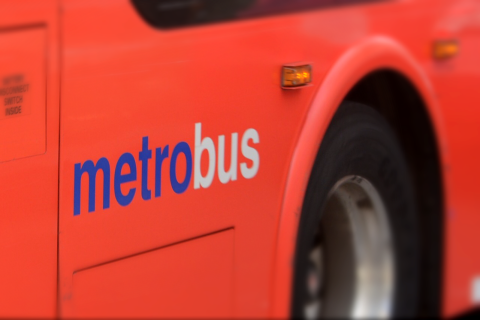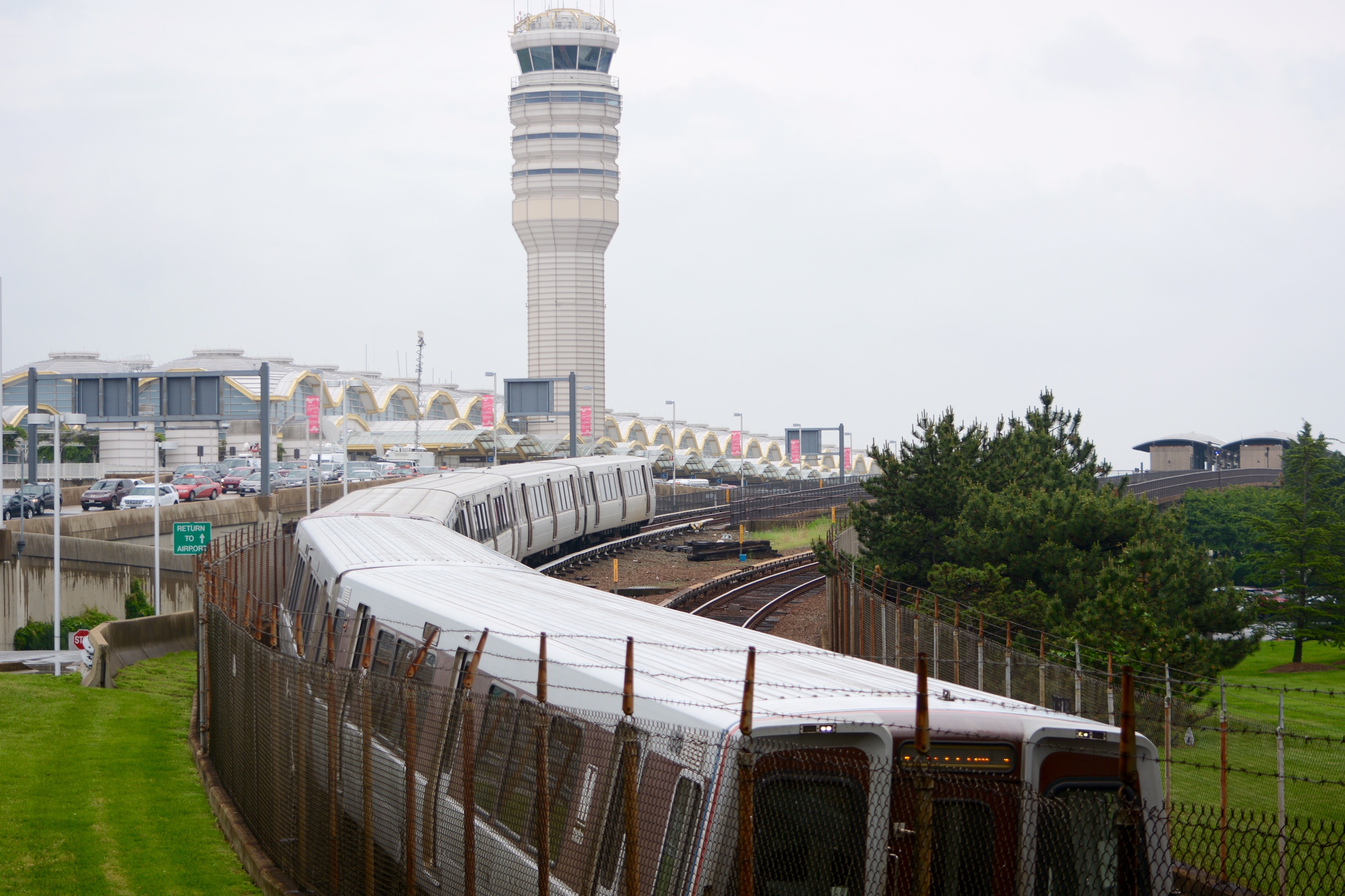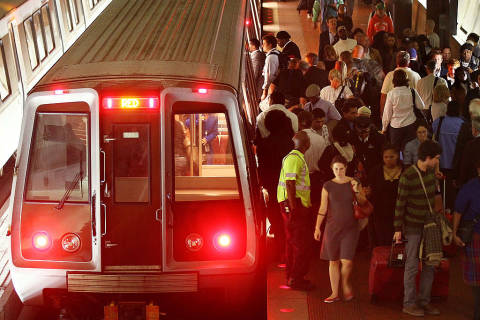




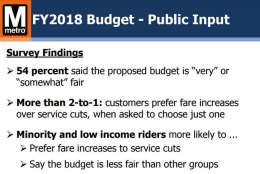
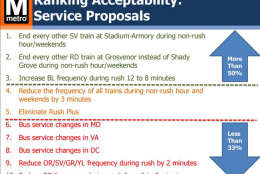
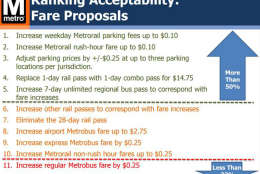
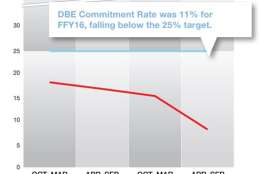
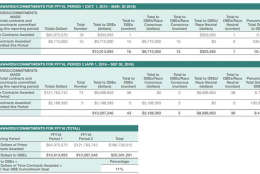
WASHINGTON – The impact of Metro’s fare increases that are expected to start this summer only narrowly meets the agency’s standards for avoiding a disproportionate burden on low-income riders.
Metro also fell far short of the goals for contracting to businesses owned and operated by minorities or women, the agency reported this week.
Fare burden
With fare increases of 14 percent for regular bus riders — along with 1.6 percent for the longest-distance rush-hour rail riders — the overall increases would raise fares for low-income riders by 10 percent, Metro said. Other riders would see an increase of 5.4 percent.
That 4.6-percent difference is just below Metro’s maximum of 5 percent.
“The key to this finding, actually, is keeping the seven-day [bus] pass at the current $17.50,” Metro CFO Dennis Anosike said Thursday.
The fare changes that are expected to be formally approved March 23 by the Metro Board include a 25-cent increase in regular and express bus fares; a 10-cent increase in rush-hour rail fares and parking fees; and a 25-cent increase in off-peak rail fares.
Metro’s federally required equity analysis estimates that riders who are members of minority groups will pay 7 percent more under the new fare structure, while non-minority riders will pay 5.2 percent more.
The estimates for the number of affected riders who are low-income or members of minority groups are based on spring 2016 rail rider surveys, a 2014 bus rider survey and other data collected in spring 2016, before 24/7 track work added to significant ridership declines across the system.
This leads to an analysis based on 59.6 percent of all rail and bus trips being taken by minority riders and 28.5 percent each year being taken by low-income riders.
The analysis also addresses the impact of service cuts and finds no disparity.
The change that impacts the largest number of overall trips remains cutting back scheduled service at rush hour. That could mean changes of at least a minute or two for more than 400,000 trips each weekday, the equity analysis estimates.
“The proposed service changes may adversely impact riders in a number of ways. On bus and rail, longer headways mean customers have to wait longer for buses and trains. On rail, once they board, their train may be more crowded,” according to the analysis.
“In many cases, travelers will see a 25 percent reduction in service.”
Two bus routes that are being eliminated may cut off some transit options.
The cancellation of the 13Y means there is no way to get to Reagan National Airport before the Metro system opens on weekend mornings, even as Sunday rail service hours get cut back this summer to 8 a.m.–11 p.m.
The end of the W19 express bus between the Southern Avenue Metro station and the Naval Surface Warfare Center in Charles County also cuts a transit option.
Metro falls far short on contracts for minority-owned or women-owned businesses
Metro spent such a small portion of its prime contracting dollars with businesses owned and operated by minorities or women (known as a disadvantaged business enterprise or DBE) that the agency is lowering its goal next year.
Metro only spent 11 percent of prime contracting dollars with the businesses in the last federal fiscal year through either contracts or subcontracts, far below the Metro Board’s 25 percent goal.
Prince George’s County Metro Board member Malcolm Augustine called the results “unacceptable.”
Metro did not adjust outreach or contracting practices since the goal was set three years ago to reflect that work had shifted from construction toward more safety and maintenance work, said Franklin Jones, the new head of Metro’s Office of Fair Practice.
“And what we find is that in those codes [in those areas] … there are fewer small and disadvantaged businesses available to participate,” Jones said.
Augustine strongly disagreed with that characterization, because such businesses are out there, he said.
Jones clarified that Metro needs to increase opportunities for small and disadvantaged businesses by breaking up more contracts into smaller pieces and doing more outreach.
“We did not do a good job of analyzing that market and providing the opportunity for participation,” he said.
To change that, Jones promised a closer look at the tasks that dollars are flowing toward, as well as greater efforts early in the process to identify companies that could win contracts.
General Manager Paul Wiedefeld said fixing this is a priority, and he promised significant changes over the next year.
“We have not been going out, reaching out to the community, to let them know the type of business we have, doing partnering opportunities for them, breaking contracts into smaller contracts to give, again, smaller firms the opportunity,” he said.
Metro will now monitor inclusion for each task done as part of a contract, Wiedefeld said, rather than only at the end of a contract, when it is too late.
A report to the Metro Board said that includes increased monitoring of ongoing contracts “to ensure DBE firm(s) that are included on the contracts are performing the work that they contractually required to do, during the appropriate phase of the contract.”

